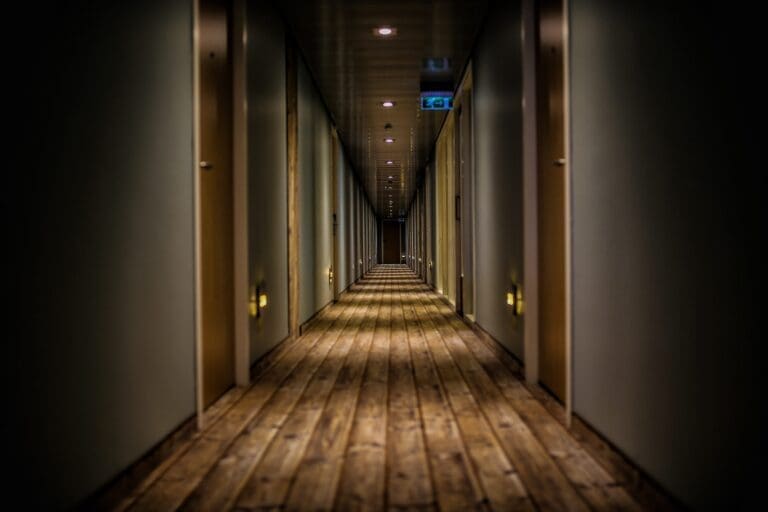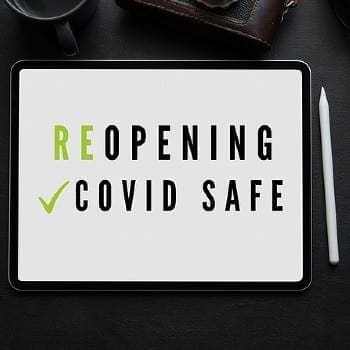 When it comes to the hospitality sector, safety is of utmost importance. The hotel industry has to comply with health and safety regulations. But what really distinguishes an excellent lodging facility from an average Joe are real concern for the safety and comfort of the guests and employees.
When it comes to the hospitality sector, safety is of utmost importance. The hotel industry has to comply with health and safety regulations. But what really distinguishes an excellent lodging facility from an average Joe are real concern for the safety and comfort of the guests and employees.
Let’s focus on the safety requirements and measures of the hotel industry and how best they can prevent accidents and contain damages if one occurs.
Smoke detectors
Most hotels still insist on installing these basic safety equipment. While there are advanced automated smoke detectors that are flooding the market now, the traditional ones when kept in good condition can serve the purpose too for smaller hotel units. Smoke detectors should be placed in corridors, storerooms, under stairways, guest rooms, public areas and storage spaces.
When you have a bigger property, most jurisdictions require that you have an automated centralized smoke detector that integrates all smoke detectors in each location with a master panel. This alerts the staff to immediately identify where a smoke detector has activated and take steps of action without delay.
Hoteliers should know that the newer varieties of smoke or heat detectors can detect and report a heat buildup prior to actual evidence of smoke or flame, as against the older varieties that would only respond to smoke or other products of combustion.
Fire extinguishers
There is a reason why every property has a fire extinguisher. When it comes to the hotel industry, it it assumes even more importance. Fire extinguishers are made to control and extinguish small fires. Installers generally follow a nationally recognized standard that dictates what type of fire extinguisher should be installed, depending on the location and size. This is why corridors often have units fit for extinguishing paper and other combustibles while kitchen areas have units designed to put out grease fires. There are four types of fires a hotel or any other lodging property should always be prepared for.
- Class A fire involving ordinary combustibles
- Class B fire involving flammable liquids
- Class C fire involving electrical equipment
- Class K fire involving cooking oils and fat
Have you ever wondered why extinguishers are placed in wall cabinets or always hung on walls? This is to prevent items from being placed on top of them, and is necessary from a security point of view.
It must be mentioned here that fire extinguishers are a necessity even if there are full sprinkler systems in the hotel. Many hotel chains are endorsing the view that fire extinguishers can be eliminated in facilities with automated sprinkler systems. This is dangerous in terms of security. Fire extinguishers can attack and extinguish a small fire quickly before it becomes huge enough and generates lot of heat to activate an automatic sprinkler system.
Though hotel fires generally are not that common, it is one of the biggest threats to the industry. A hotel fire can quickly become massive if not curtailed immediately and claim lives and property. It also becomes pertinent then to provide appropriate training to hotel staff on how to use the fire extinguisher. They should know when and how to use it, and when to call a fire department without delay.
Sprinkler systems
The New Year fire that took place in a very famous hotel in Dubai set ripples in the hotel industry. While there were many causes and conclusions that were debated and discussed, it did bring focus back to the all-important sprinkler systems in hotels. Sprinkler systems are now mandatory in establishments that are four stories or higher, according to the Hotel and Fire safety laws in many countries. Most jurisdictions however insist that all new construction, commercial occupancy facilities must have full sprinkler systems, irrespective of their height.
Sprinklers can put out a build-up of fire quickly before it spreads throughout the hotel and causes panic and hysteria. In fact, a well administered internal fire security system is what protected the fire from catching on in the interiors of Address Downtown in Dubai, while the facade blazed on.
CCTV cameras
So you may be wondering why this made it to the list, when it is so all-pervasive in the hotel industry. It is indeed true that all major hotels across the world are equipped with CCTV cameras. However, there are still some individual units, nature resorts (that attempt to keep all electronic devices away) that refrain from employing CCTV cameras. An American couple reported theft of precious jewelry from a well known nature resort in Koh Samui in Thailand. However, the investigations could not prove anything with conviction as the property did not have any CCTV cameras installed.
CCTV cameras are a must for guest security as well as hotel reputation as they provide consistent views of the nooks, crannies and hidden corners of the hotel. Guests feel more secure knowing that CCTV cameras are installed in the property. They have emerged as an important part of the security system in any business, especially in the hotel industry.
Carbon monoxide detectors
Carbon monoxide is the most hazardous gas generated in any combustion. It is usually a by-product of a malfunctioning water heater, kerosene heater, coal boiler or any other petroleum unit. The properties of carbon monoxide are such that it cannot easily be detected. It is not odorous or visible. However, its hazardous nature can also cause death. Presence of a carbon monoxide detector thus becomes imperative in high population density facilities.
Danger and safety instruction signs
According to OSHA, there are three types of accident prevention signs. Danger signs indicate all danger areas like restricted areas, areas on fire, emergency exits and the like. The second accident prevention signs are Caution signs which are usually indicated by yellow. They are used to indicate possible hazards like slippery floors, unsafe stairways and areas of construction. They are used to alert anyone of possible danger. The third type of accident prevention signs are the safety instruction signs which basically are instructions to users regarding using certain areas or facilities safely.
With the above equipment in place and functioning properly, safety levels are considered appropriate in a hotel. Management must also take care, however, to have competent and alert security guards who know how to prevent, as well as deal with, dangerous situations should they take place.
About the author
 Mace Bourgeois grew up in the fire safety industry when he began working for his father in high school “cutting pipe” for kitchen fire suppression system installations. 30 years later, as President/CEO of Fire & Safety Commodities, Mace continues to improve and expand the business by opening new offices and creating new jobs. Fire & Safety Commodities services the New Orleans Metroplex, Lafayette, Lake Charles, the Mississippi Gulf Coast and parts of Alabama.
Mace Bourgeois grew up in the fire safety industry when he began working for his father in high school “cutting pipe” for kitchen fire suppression system installations. 30 years later, as President/CEO of Fire & Safety Commodities, Mace continues to improve and expand the business by opening new offices and creating new jobs. Fire & Safety Commodities services the New Orleans Metroplex, Lafayette, Lake Charles, the Mississippi Gulf Coast and parts of Alabama.



















